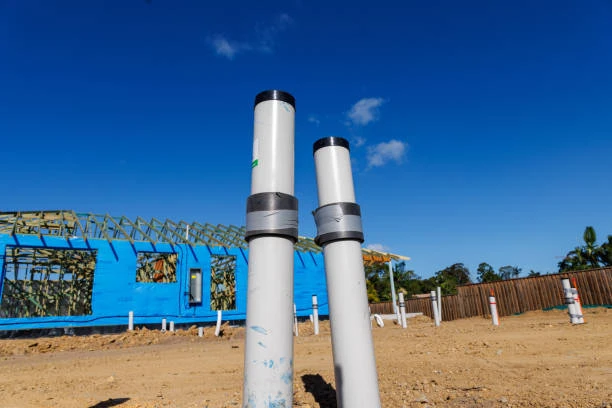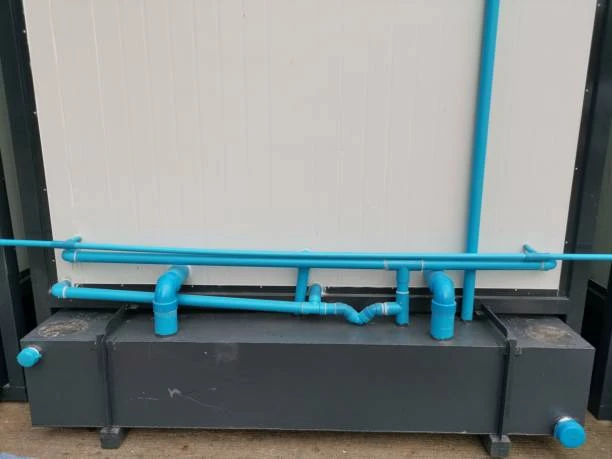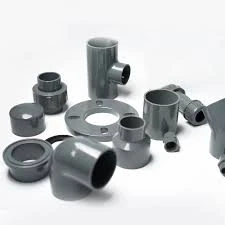Introduction: The Rise of Recycled Plastic Conduits
Recycled plastic conduits are gaining popularity as an alternative to traditional materials in the construction and electrical industries. These conduits offer numerous environmental and economic benefits, leading to a successful reform in the way electrical systems are designed and installed. As sustainability becomes a priority, the shift toward recycled plastic conduits presents a significant step in reducing waste and conserving resources.
What Are Recycled Plastic Conduits?
Manufacturers make recycled plastic conduits from post-consumer plastic waste, typically sourced from products like bottles, packaging, and industrial scraps. These conduits house and protect electrical wiring, offering the same functionality as traditional PVC or metal conduits. The key difference is that recycled plastic conduits are made from materials that have already been used, reducing the need for virgin plastic production.
Environmental Benefits of Recycled Plastic Conduits
The most significant advantage of recycled plastic conduits is their positive environmental impact. Using recycled materials reduces plastic waste that would otherwise end up in landfills or oceans. By choosing recycled plastic, manufacturers help reduce the demand for new plastic production, which in turn lowers energy consumption and greenhouse gas emissions. This makes recycled plastic conduit an essential component of sustainable building practices.
Cost-Effectiveness of Recycled Plastic Conduits
Recycled plastic conduits are not only environmentally friendly but also cost-effective. Since they are made from recycled materials, their production costs are typically lower than those of virgin plastic products. This affordability makes them an attractive option for contractors and developers who are looking to reduce project costs without sacrificing quality. Recycled plastic conduits are strong, durable, and lightweight, which further reduces installation and transportation costs.
The Role of Recycled Plastic Conduits in Green Building Projects
Green building standards, such as LEED (Leadership in Energy and Environmental Design), encourage the use of sustainable materials in construction. Recycled plastic conduit play a key role in these projects by contributing to a building’s sustainability certification. The use of recycled materials helps projects earn points toward energy efficiency, waste reduction, and lower carbon footprints. This makes recycled plastic conduits an excellent choice for developers and architects focused on eco-friendly designs.
How Recycled Plastic Conduits Improve Infrastructure
Recycled plastic conduit offer significant improvements to modern infrastructure projects. Their lightweight nature makes them easier to handle and install, reducing labor costs and improving efficiency. Furthermore, these conduits are resistant to corrosion, chemicals, and moisture, which enhances their longevity. For projects in harsh environments, recycled plastic conduit provide a durable, long-lasting alternative to metal conduit that are prone to rust and degradation.
How Recycled Plastic Conduits Enhance Safety
Safety is another area where recycled plastic conduit shine. These conduits are non-conductive, which means they provide better electrical insulation compared to metal conduits. This property helps to reduce the risk of electrical shock or short circuits, making them ideal for residential, commercial, and industrial applications. Additionally, recycled plastic conduit are lightweight, making them easier and safer for workers to install.
The Recycling Process Behind Recycled Plastic Conduits
The process of making recycled plastic conduit begins with collecting post-consumer plastic waste. They sort, clean, and process the waste into pellets or flakes. Then, they melt and extrude the pellets into conduit shapes. The recycling process ensures that people reuse the plastic multiple times, helping to reduce overall plastic waste. This cycle of reuse is crucial in the global effort to minimize plastic pollution and promote a circular economy.
The Growing Demand for Recycled Plastic Conduits
The demand for recycled plastic conduit is on the rise, driven by both regulatory requirements and consumer preference for sustainable products. More countries are implementing stricter environmental regulations, pushing manufacturers to explore greener alternatives to traditional building materials. As companies and consumers become more eco-conscious, recycled plastic conduit offer a compelling solution for meeting these demands while maintaining high performance and reliability.

Recycled Plastic Conduits in Commercial and Residential Projects
In both commercial and residential construction, recycled plastic conduit are finding widespread use. In commercial buildings, they are used to route electrical cables in walls, ceilings, and floors. The durability and versatility of recycled plastic conduit make them suitable for various applications in both sectors, contributing to energy-efficient and eco-friendly construction.
Challenges in the Adoption of Recycled Plastic Conduits
Despite their benefits, the widespread adoption of recycled plastic conduit still faces some challenges. One of the main barriers is the lack of awareness among contractors and developers about the advantages of using recycled materials. There is also some hesitation due to perceived concerns about the quality and durability of recycled plastic products. However, as more successful case studies emerge and as organizations increase certifications for recycled plastic products, they are overcoming these barriers.
Innovations in Recycled Plastic Conduit Design
Recent innovations in recycled plastic conduit have led to improved designs that enhance their functionality. For example, new manufacturing techniques allow for the production of flexible conduits, which are easier to install in tight spaces. They can apply advanced coatings to the surface of the conduits to increase their resistance to UV rays, heat, and harsh chemicals. These innovations are making recycled plastic conduit even more competitive with traditional materials in terms of performance.
The Future of Recycled Plastic Conduits
The future of recycled plastic conduit looks promising as more companies and industries recognize the value of sustainable materials. As technology improves, the production of recycled plastic will become more efficient, further driving down costs. The global push for sustainability will continue to drive demand, and recycled plastic conduit are positioned to meet the needs of both the construction and electrical industries in the coming years.
Conclusion: A Sustainable Solution for the Future
Recycled plastic conduit are an innovative and sustainable solution for modern infrastructure and construction projects. They offer numerous environmental, economic, and safety benefits while helping to reduce plastic waste. As the demand for sustainable building materials continues to grow, recycled plastic conduit will play an increasingly important role in shaping the future of construction and electrical systems. By embracing this reform, industries can move toward a greener, more sustainable future.
Frequently Asked Questions (FAQs)
1. What are recycled plastic conduit?
Manufacturers make recycled plastic conduit from post-consumer plastic waste to protect electrical wiring in construction projects.
2. How are recycled plastic conduit made?
They create recycled plastic conduit by collecting plastic waste, cleaning it, and melting it into new forms, which are then extruded into conduit shapes.
3. What are the benefits of using recycled plastic conduit?
They offer environmental benefits by reducing plastic waste, are cost-effective, lightweight, durable, and provide better insulation for electrical wiring.
4. Can recycled plastic conduit be used in all types of construction?
Yes, builders use recycled plastic conduit in residential, commercial, and industrial projects due to their versatility, durability, and safety features.
5. Are recycled plastic conduit as reliable as traditional materials?
Yes, recycled plastic conduit meet or exceed the performance standards of traditional materials like PVC and metal, offering long-lasting, reliable solutions.


















